 Weird Stuff
Weird Stuff  Weird Stuff
Weird Stuff  Mysteries
Mysteries 10 Tragic Disappearances and Deaths in Joshua Tree National Park
 History
History 10 Ways Childhood Really Sucked in the Old West
 Music
Music 10 Name Origins of Famous Bands from the 1990s
 Religion
Religion 10 Biggest Turnarounds by the Catholic Church
 Weird Stuff
Weird Stuff 10 Unbelievable Times Laws Had Unintended Consequences
 Humans
Humans Ten Historic Women Who Deserve Way More Credit Than They Got
 Movies and TV
Movies and TV 10 Films That Spawned Major Lawsuits
 History
History Ten Times Towns Were Wiped Off the Face of the Earth
 Creepy
Creepy 10 of the Most Disturbingly Haunted Public Houses in the UK
 Weird Stuff
Weird Stuff 10 Niche Subcultures That Are More Popular Than You Might Think
 Mysteries
Mysteries 10 Tragic Disappearances and Deaths in Joshua Tree National Park
 History
History 10 Ways Childhood Really Sucked in the Old West
Who's Behind Listverse?

Jamie Frater
Head Editor
Jamie founded Listverse due to an insatiable desire to share fascinating, obscure, and bizarre facts. He has been a guest speaker on numerous national radio and television stations and is a five time published author.
More About Us Music
Music 10 Name Origins of Famous Bands from the 1990s
 Religion
Religion 10 Biggest Turnarounds by the Catholic Church
 Weird Stuff
Weird Stuff 10 Unbelievable Times Laws Had Unintended Consequences
 Humans
Humans Ten Historic Women Who Deserve Way More Credit Than They Got
 Movies and TV
Movies and TV 10 Films That Spawned Major Lawsuits
 History
History Ten Times Towns Were Wiped Off the Face of the Earth
 Creepy
Creepy 10 of the Most Disturbingly Haunted Public Houses in the UK
10 Common Misconceptions about Sherlock Holmes
NOTE: This list contains a competition—see the bonus item. We have all heard of Sherlock Holmes, and in the eyes of most of the world he is the greatest fictional detective of all time. His popularity is so great that there is an entire society devoted to Sherlock Holmes fan fiction and sometimes to pretending he is real, called the Baker Street Irregulars. It is inevitable that with such popularity there will be many mistaken notions about the character. Its mythology becomes distorted and things that are not at all true become commonly repeated as fact. Below are ten things most people think about Sherlock Holmes, that are completely wrong.
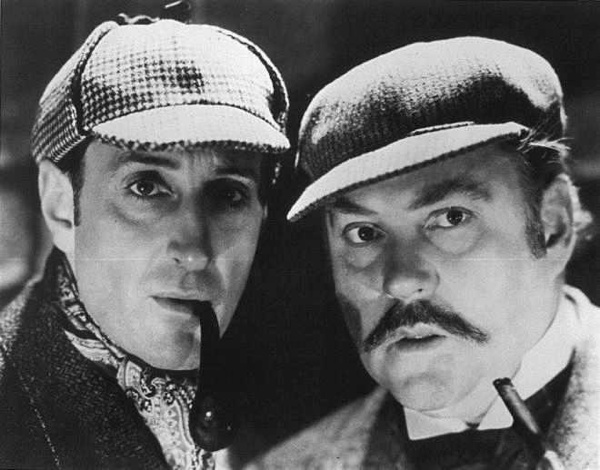
Misconception: He wouldn’t treat an innocent person badly just to solve a case.
Many people see Sherlock Holmes as a white knight of the detective world: he solves cases using only the power of his mind and innocent people never get hurt in the process. He is universally beloved as the greatest fictional detective in the world, but he had more of a dark side than just his drug use and other eccentric habits. Sherlock Holmes was not at all averse to doing whatever it took to win a case, and he often played the game for the games own sake. In one story The Adventure of Charles Augustus Milverton, he becomes engaged to a housemaid to get closer to a villain he is trying to expose. After he solves the case, he simply leaves the woman, presumably upsetting her greatly. He never makes any effort to explain the situation to her and we never hear about it again. He also employed a small group of street urchins to do his dirty work, which he affectionately called “The Baker Street Irregulars.” We see them in The Sign of the Four, A Study in Scarlet, and The Adventure of the Crooked Man.
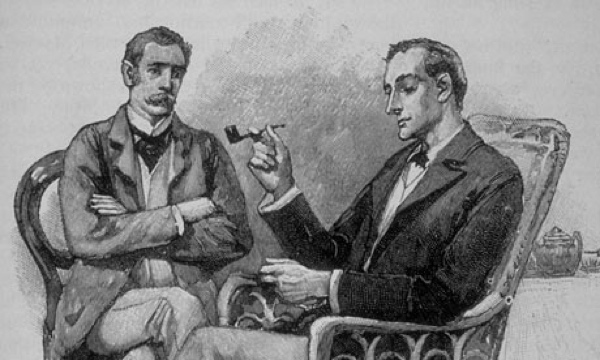
Misconception: Sherlock Holmes was a socially-forward thinker
In The Adventure of the Three Gables Sherlock Holmes engages in some very cruel and racist conversations with black people. He basically calls a black boxer stupid based on his skin color and then goes so far as to make fun of the size of his lips. An excerpt from Holmes encounter with Steve Dixie, a black boxer: “‘That’s my name, Masser Holmes, and you’ll get put through it for sure if you give me any lip.’ ‘It is certainly the last thing you need,’ said Holmes, staring at our visitor’s hideous mouth.” After The boxer left Sherlock Holmes comments: “I am glad you were not forced to break his woolly head, Watson. I observed your maneuvers with the poker. But he is really rather a harmless fellow, a great muscular, foolish, blustering baby, and easily cowed, as you have seen.” There are other times where more commonplace comments are made about people from Africa in general, that are somewhat disparaging. There are a couple of important things to note, however. When the stories were written, these attitudes were fairly commonplace, it doesn’t excuse them, but it doesn’t make the character much different from anyone else in England at the time. It is also interesting to note that many scholars believe The Adventure of the Three Gables, which had the most obvious racism, was actually a forgery and not written by Arthur Conan Doyle at all. This would not be particularly surprising as Sherlock Holmes fan fiction has been popular for a long time.
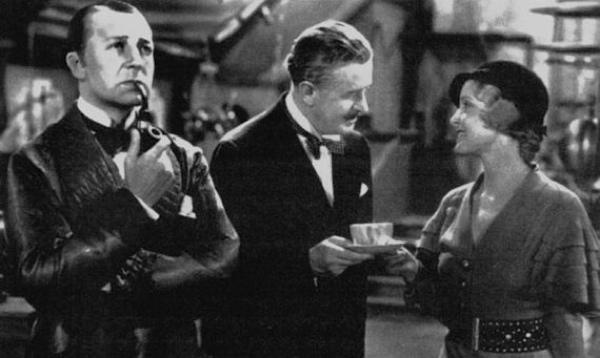
Misconception: Sherlock Holmes withholds information from the police.
In the recent Sherlock Holmes movies, he is pictured taking evidence from crime scenes and hiding it from the police on multiple occasions. This allows him to stay several steps ahead at all times and ensures he solves the case before they do. The only problem here is that this is totally the opposite of how he behaved in the books. Sherlock Holmes would always leave enough evidence for the police to figure out the same things he did if they were so inclined as we see in The Adventure of the Devils Foot. And he would often share information with them if he thought they were pursuing a useless line of inquiry, which we can see in The Adventure of Wisteria Lodge. Sherlock Holmes stayed ahead of the police because he was simply better at deduction than they were; it does a disservice to his character to suggest that he would ever misappropriate evidence.

Misconception: Holmes trusts his best friend Dr. Watson.
Sherlock Holmes’s best friend is Dr. John Watson, and he relies on him as his biographer and companion, especially on very dangerous missions. The pair are incredibly close and remain good friends throughout most of their lives. Holmes even comments that he would be “lost without his Boswell,” in reference to the famous 18th century biographer of Samuel Johnson. However, while Holmes may have trusted his best friend to defend him in a scrape, and trusted his medical knowledge, he does not truly trust Dr. Watson. In The Hound of the Baskervilles, Holmes sends Dr. Watson to keep an eye on the situation at Baskerville hall, and then sneaks out to the moor to keep an eye on the situation himself rather than trusting his friends account. And to make matters worse he does not even tell Dr. Watson of his arrival. Also, in The Adventure of the Dying Detective, he tricks his best friend into thinking he is dying of a deadly disease because he does not believe that Dr. Watson would be able to keep the secret that he was faking it if he told him. While he claims respect for Dr. Watson’s medical skills, it’s a poor show that he doesn’t think his friend could go along with his game.
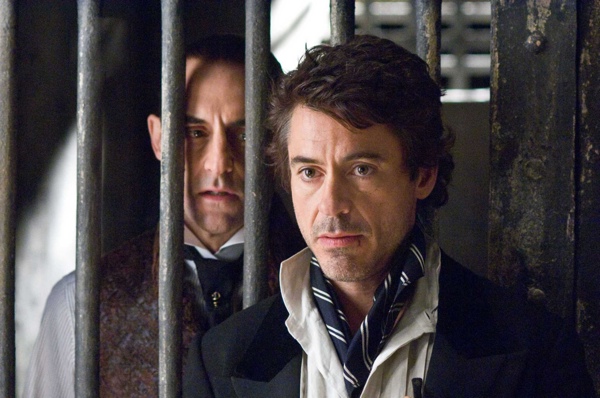
Misconception: Holmes dresses in an eccentric manner and is often dirty or unkempt.
Not all movies are guilty of this particular offense, but the horrible monstrosity that was the recent two part movie series with Robert Downey Jr is a huge offender. Robert Downey Jr portrays Holmes as dressing in an extremely eccentric manner, including ill fitting clothes, strange ensembles that don’t make sense and as having a general air of bad hygiene. However, Sherlock Holmes is actually described in The Hound of the Baskervilles as having a cat like approach to cleanliness. He dressed in very traditional, conservative clothes for his time and was always impeccably neat. In fact, in The Hound of the Baskervilles, Sherlock Holmes is out on the moor investigating a case in secret, living in an old shack, and still arranges to have fresh linen and other luxuries brought to him so that he can remain neat and clean.
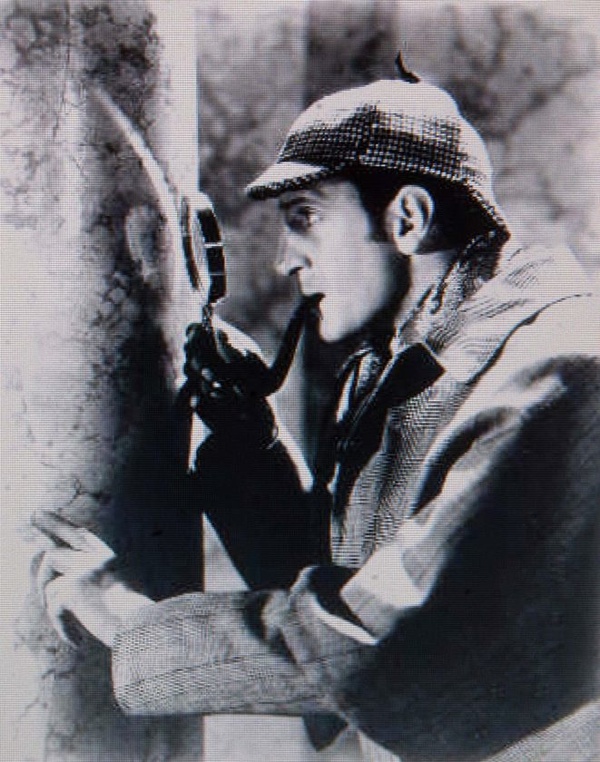
Misconception: Holmes is always seen with a deerstalker cap and calabash pipe.
The popular conception of Holmes with his deerstalker cap and calabash pipe has become so common that it is considered an iconic part of Sherlock’s Holmes persona. However, it is also a complete fabrication. The deerstalker cap and calabash pipe combo was made up for theater and has never been a part of Sherlock’s normal outfit. The calabash pipe was originally used by the actor in one of the original Sherlock Holmes plays because it was easy to rest on his chest while he was talking. But in fictional reality, Holmes used a much different pipe. This might sound like nitpicking, but the calabash pipe and deerstalker cap combo have become synonymous with Sherlock Holmes, or detectives in general though it is entirely inaccurate.
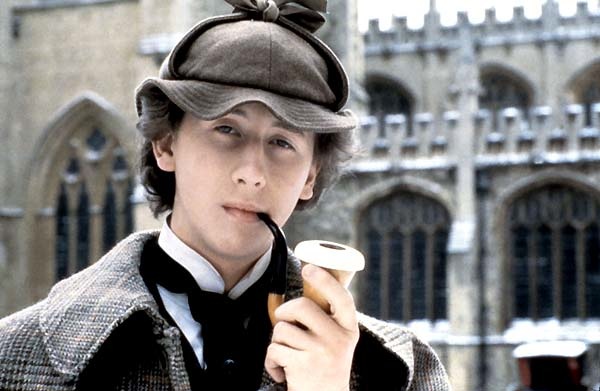
Misconception: Dr. Watson and Sherlock Holmes are middle-aged gentlemen.
In popular culture many people view Sherlock Holmes and his friend Dr. Watson as somewhere around middle age, getting older and quite experienced. It’s fairly easy to make this mistake, because Dr. Watson had already served in the war and was a skilled doctor, and Holmes had created quite a reputation for himself. However, Holmes and Watson were actually both quite young, in their early twenties for most of their adventures. Holmes and Dr. Watson were close in age, and Holmes was said to be born in 1854 and Dr. Watson met him in 1881. Most of their adventures spanned the first few years they became friends, which would place them in their late twenties and still quite young. The explanation for how they could accomplish so much at a young age is very simple; they were both brilliant young men. While Dr. Watson is easily overshadowed by his friend, he was quite an intelligent man, very skilled at practicing medicine and conducted himself very well during the war.
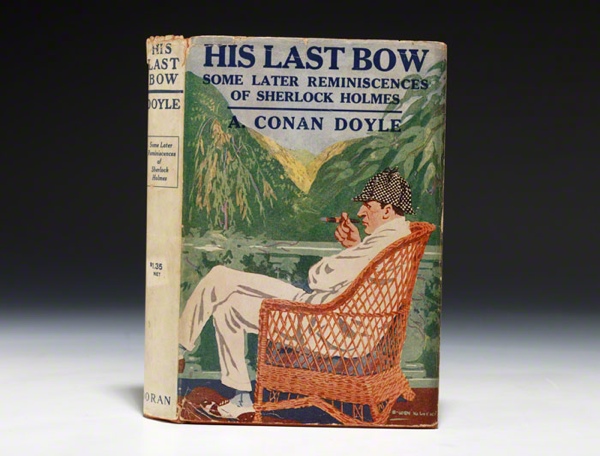
Misconception: He never spent more than a couple months on a case and retired relatively young.
There is some truth to this; Holmes solved most cases with extraordinary speed. And he had intended to retire young. Holmes had retired to a quiet life of studying bees and even published what he called “the magnum opus of his latter years,” which was a book about his observations learned from beekeeping. However, the government had a problem; they were losing information to the other side and losing agents and could not figure out who was behind it. After several high up government officials intervened, Holmes finally agreed to take the case in the story His Last Bow. In the end Holmes catches up with the German secret agent who was causing all the trouble, and teams up with Dr. Watson for the final act. He reveals to Dr. Watson that his plan to defeat the German agent was so convoluted it involved him joining an Irish secret society in America for two full years, just to get at one agent. We can safely say that Holmes was nothing if not thorough.

Misconception: Irene Adler was Sherlock’s love interest.
Many movies and TV specials felt that to increase viewer eyeballs, they needed to give Sherlock Holmes a love interest. We can see a dramatized example of this in the recent films where Robert Downey Jr plays a bisexual, eccentric playboy who is in love with both Irene Adler and his friend Dr. Watson. Holmes had an ongoing love affair with Irene Adler, so it was perfect, right? Except that is completely untrue. Irene Adler is only mentioned in one story, A Scandal in Bohemia, and the only thing she says to him is “Good-night, Mister Sherlock Holmes,” while disguised as a passerby. Sherlock later describes her as “the woman,” but only because she was the only woman to ever best him at anything. He respected her intellect, but had no romantic inclinations toward her and we never hear of her again. If you need any more evidence, Arthur Conan Doyle described Sherlock Holmes as “inhuman as a Babbage’s calculating machine,” and felt his famous detective was not at all interested in romance.

Misconception: Professor James Moriarty was his arch-enemy.
Contrary to the popular notion that has been ingrained in us by so many television series and movies on the subject, Professor Moriarty was hardly Sherlock Holmes arch-nemesis. Moriarty actually only appears in one story, The Final Problem, he is also mentioned briefly in The Valley of Fear but only in the vein of giving paid consultation to other criminals. As far as him facing off against Holmes there is really no such evidence of it ever happening, apart from their famous battle at the Reichenbach falls. In fact, Arthur Conan Doyle had tired of the character of Holmes and wanted to move on to other projects, so he mainly just made up the conflict between Moriarty and Holmes so he could kill his most famous character, but the fans raised such an outcry that he reluctantly brought the detective back from the dead. Hardly has there ever been a character with so much popularity that people wore black armbands in the streets to mourn his death.

Everyone loves Sherlock Holmes so we have a competition to win the complete collection. This collection includes all four novels and fifty-six short stories. To enter the competition you simply have to comment on this list. Your comment should be related to this list and should not be an obvious attempt to win—in other words, don’t comment just for the sake of commenting. When tomorrow’s lists are published, the five comments with the highest upvotes will be chosen from this list to win the prize—so you get to pick the winners with your votes! We will notify the winners by email (if registered) or via a reply here. We will also name the winners on the Listverse Facebook Page. There is no limit to the number of comments per person. Remember—the more upvotes your comment gets, the better your chances of winning so email your friends and tell them to vote!
You can follow Gregory Myers on twitter.








